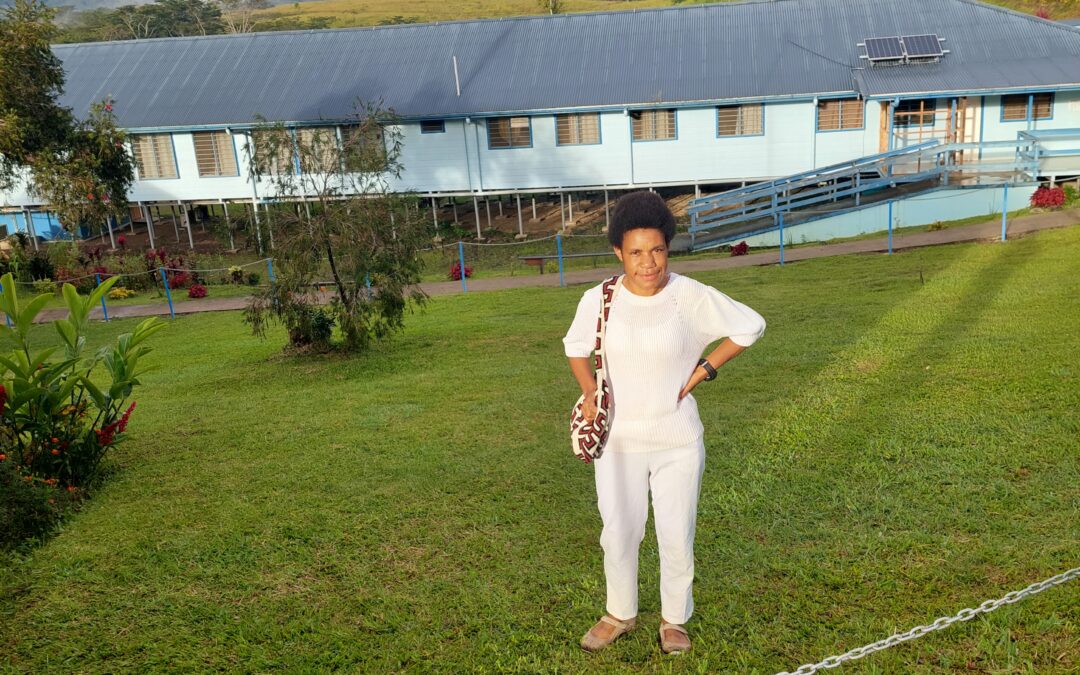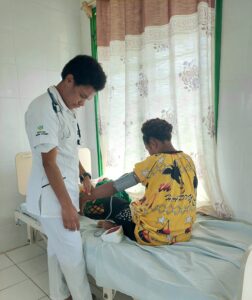In the remote and rugged Kassam in the Obura-Wonenara District in Eastern Highlands of Papua New Guinea, nurse Lalu Pepna is making a real difference. Serving at the Evangelical Brotherhood Church (EBC) Kassam Rural Hospital, Lalu is part of a dedicated team of healthcare professionals working tirelessly to save lives in some of the country’s most challenging conditions.
For Lalu, nursing was always her calling. “I was four when my dad asked me what I wanted to become, and I said ‘nurse’,” she explains. “It wasn’t until later, when I was in high school, that I realised it was my vocation and calling.”
Since then, Lalu has had many rewarding experiences as a nurse, but one stands out above the rest. “Saving a mother in second-stage complications was the hardest thing I’ve ever done, but also the most rewarding,” she says. “To deliver this sort of complicated labour in remote locations with very minimal resources will be impossible. I was part of the team that saved this mum, and I am so proud of this.”
But being a nurse in Papua New Guinea is not without its challenges. Lalu explains that one of the hardest things is watching patients die of minor or treatable conditions due to a lack of resources. “It breaks my heart,” she says.
Despite the challenges, Lalu is proud of how far she’s come. As someone with hearing impairment, she has faced ridicule and discrimination in her society. But through hard work and determination, she has excelled academically.
Lalu’s ultimate hope for the health sector in PNG is to see more medical professionals, especially in rural areas, to decrease mortality rates and promote healthy living. She admires Florence Nightingale for her dedication to serving rural communities and believes that nurses have a crucial role to play in saving lives.
Lalu’s achievements have been recognised through an Australia Awards scholarship, which she says means a great deal to her. “I come from a poor rural background where people like me with a disability and especially a female are not given the opportunity to excel in their education and career of choice,” she says. “Through the scholarship, my tuition fees were paid in full, I was provided a hearing aid including digital stethoscope for my clinical duties and resources and allowance.”
Looking to the future, Lalu hopes to become a midwife and continue making a difference in Papua New Guinea’s healthcare sector. “My hope is to see many health workers and medical specialists fielding hospitals, rural clinics, and aid posts throughout the country,” she says. “I hope that mortality rates decrease, and Papua New Guineans live healthy long lives and contribute well to PNG’s development.”

